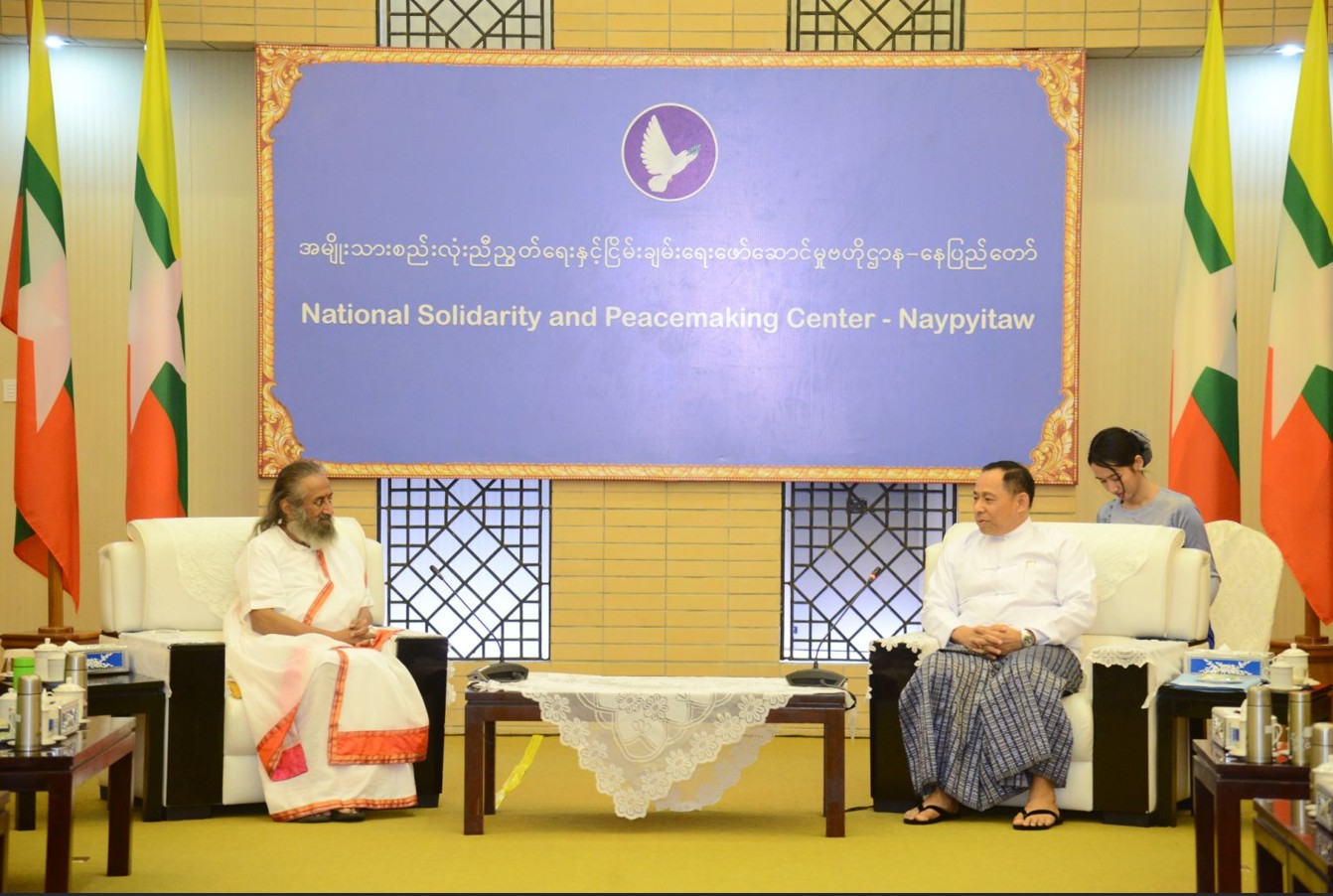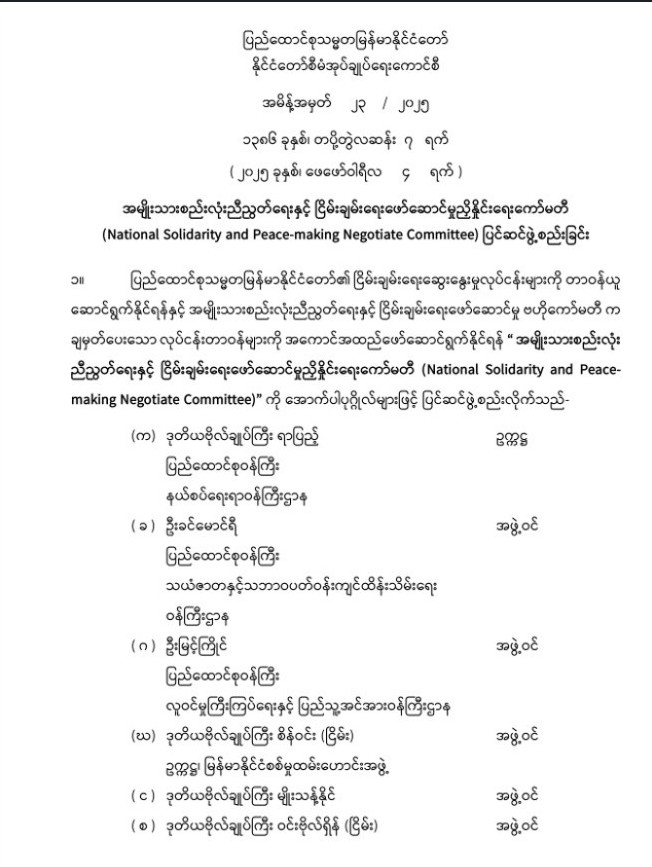CNI News
17 August 2025
Those involved in the peace process told CNI News that while the peace implementation committees formed under the previous SAC (State Administration Council) have been dissolved and are to be re-formed, the key figures should not be changed.
The Office of the National Defense and Security Council announced on August 1, 2025, that a total of 194 committees, commissions, and organizations—including the National Solidarity and Peace-making Negotiation Committee (NSPNC)—formed under the SAC had been dissolved.
Although the NSPNC has now been dissolved, it will be re-formed, but the main figures should not be changed, said PNLO-NCA.S Chairman, Colonel Khun Okkar, in an interview with CNI News.
“Of course, we were worried as soon as we knew that. What’s going on? For our NCA signatory groups, we have our dialogue partners. So, are our partners gone now? They said no—it will be re-formed as soon as possible. This is just about abolishing what had been established during the former government. Soon, everything will be reorganized as needed. Although they announced its dissolution, we see that the committee members are still continuing their work as usual. Yes, some personnel may be changed. But the main key figures should not be changed. Peripheral, less central members may come and go, but those who have long stood as dialogue partners—the leaders—have experience, familiarity, and trust. These are irreplaceable. So it seems that these leaders will be reinstated and given responsibilities again.” said Colonel Saw Kyaw Nyunt.

Peace committees formed to hold talks with ethnic armed organizations (EAOs) are often restructured whenever there is a change of government.
During President U Thein Sein’s administration, the Union Peace-making Work Committee (UPWC) and Myanmar Peace Center (MPC) were formed. Under the NLD government, they were dissolved and replaced by the National Reconciliation and Peace Center (NRPC) and Peace Commission (PC). Later, under the SAC, they were reorganized as the NSPNC.
Colonel Saw Kyaw Nyunt, spokesperson of the 7EAO Alliance, told CNI News that during U Thein Sein’s administration, because of the high level of mutual trust between the government and ethnic armed groups, the most important agreement—the NCA (Nationwide Ceasefire Agreement)—was able to emerge.
He added that when new structures are reorganized, trust must be rebuilt, which brings difficulties.
Major General Saw Kyaw Nyunt said: “After the NCA emerged, the leaders who had made efforts for the NCA were no longer involved when the NLD government took over in 2015–2016. That caused difficulties. It’s about trust. When you have people who’ve long worked with you, trust develops. But when new committees are formed with new people, you have to rebuild that trust, and make fresh efforts again. That brings challenges. If the people who had been involved from the very beginning are replaced, then the negotiation process itself becomes broader and more complicated. And for us, the ethnic armed organizations, rebuilding and implementing those things again takes time and is not easy. That’s why, although I say there are difficulties when changes happen, if the original key people who have been engaged from the start continue to be involved, even under a new name, then that can serve as an easier way amidst the difficulties. That’s what we’ve experienced.”

Among the bodies recently dissolved by the current Defense and Security Council were the National Solidarity and Peace-making Central Committee (NSPC), the National Solidarity and Peace-making Work Committee (NSPWC), the NSPNC, and the negotiation teams with ethnic armed organizations.
Although the NSPNC has been dissolved, plans are being made to form a new body, with the possibility of only minor changes to its representatives.
The NSPNC was the committee responsible for meeting with ethnic armed groups and discussing the peace process.
The NSPNC was chaired by Lieutenant General Yar Pyae (Minister for Border Affairs), with Lieutenant General Min Naing serving as Secretary. Other members included:
Maj-Gen. Aung Kyaw Kyaw (Deputy Minister for Home Affairs)
Police Chief Win Zaw Moe
A Colonel (Office of the Chief of Military Security Affairs)
Brig. Gen. Wunna Aung (JMC)
U Hla Maung Shwe
Lt. Gen. Win Bo Shein (Retired)
Lt. Gen. Sein Win (Retired / Chairman of Myanmar War Veterans Organization)
Lt. Gen. Myo Thant Naing
U Myint Kyaing (Minister for Immigration and Manpower)
U Khin Maung Yi (Minister for Natural Resources and Environmental Conservation)




